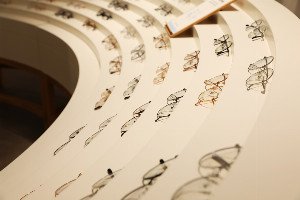Carolina Anglada
Imposturas do poema
Introduction
Imposturas do poema. Explore a impostura perversa do poema na obra de Alice Vieira e Ismar Tirelli Neto, usando a Verleugnung freudiana. Analisa a perversão como dispositivo estético e político.
Abstract
Buscando pensar os efeitos de uma certa impostura perversa do poema, lê-se a obra de Alice Vieira e Ismar Tirelli Neto a partir tanto de um questionamento sobre o sujeito que escreve e o sujeito da leitura, quanto sobre os procedimentos que atam essas duas figuras na posição que são levados a ocupar. Parte-se, portanto, da Verleugnung freudiana, traduzida como desmentido e denegação, a fim de se perscrutar como também o trabalho do verso se conjuga ao enviesamento e à clivagem próprias à perversão, pensada aqui não como estrutura subjetiva, e sim como dispositivo estético e político que tem que ver com a indecidibilidade e com a polimorfia da enunciação.
Review
This paper, titled "Imposturas do poema," proposes a highly original and theoretically sophisticated examination of poetic practice. Its central premise, exploring the "perverse imposture of the poem," immediately signals an ambitious and challenging re-evaluation of the relationship between text, author, and reader. By engaging with the works of Alice Vieira and Ismar Tirelli Neto through the lens of Freudian *Verleugnung* (disavowal/denial), the study promises to shed new light on the intricate mechanisms that shape both the creative act and its reception. The abstract suggests a critical and timely interrogation of how poetic procedures construct, and perhaps deconstruct, the positions occupied by the writing and reading subjects, marking a significant contribution to literary theory and psychoanalytic criticism. A key strength lies in the nuanced theoretical framework articulated. The decision to conceptualize "perversion not as a subjective structure, but as an aesthetic and political device" is particularly compelling. This reframing allows the analysis to move beyond pathologizing interpretations and instead focus on the productive, destabilizing capacities of language. By linking the "work of the verse" to concepts like *enviesamento* (biasing) and *clivagem* (cleavage) inherent to this redefined notion of perversion, the paper indicates a deep engagement with the formal and structural elements of poetry. The promise to explore how these dynamics contribute to the "indecidability and polymorphy of enunciation" suggests a sophisticated approach to understanding poetic ambiguity and its wider implications. This research holds considerable potential to provoke new discussions within literary studies, particularly concerning the ethical and political dimensions of poetic form. By challenging conventional notions of authenticity and sincerity in poetry through the concept of "imposture," and by re-evaluating perversion as a critical aesthetic tool, the paper offers a robust framework for analyzing texts that resist straightforward interpretation. It opens avenues for reconsidering the agency of the poetic text itself, and how it actively shapes the subjects involved in its creation and consumption. This promises to be an insightful and intellectually stimulating contribution that will undoubtedly resonate with scholars interested in psychoanalytic literary criticism, aesthetics, and the philosophy of language.
Full Text
You need to be logged in to view the full text and Download file of this article - Imposturas do poema from O Eixo e a Roda: Revista de Literatura Brasileira .
Login to View Full Text And DownloadComments
You need to be logged in to post a comment.
Top Blogs by Rating
Your DNA's Ancient Story: Unlo...
By Sciaria
From Wires to Wonders: The Ele...
By Sciaria
The Dark Matter of Big Data: U...
By Sciaria
Favorite Blog
Blockchain: Building the Inter...
By Sciaria
The Hidden Scents of Rebellion...
By Sciaria
The Art of Unlearning: Educati...
By Sciaria
Related Research
Reseña de del valle, josé. 2024. lo político del lenguaje. travesía por el español y sus malestares. santiago de chile: verba volant.
Technological aspects of selected gold objects from ur - preliminary results and perspectives
Published ipac'14 proceedings
Share
Notice Board
- PELATIHAN PENGOLAHAN AIR SUNGAI SEBAGAI SOLUSI AKSES AIR BERSIH YANG LAYAK DI PEMUKIMAN LAHAN BASAH
- NORTH MACEDONIA MONTHLY BRIEFING: EUROPE’S WASTELAND: HOW MACEDONIA BECAME ONE OF..
- ADAPTATION AND PSYCHOMETRIC EVALUATION OF THE INDONESIAN VERSION OF THE CAREER ASPIRATIONS SCALE-REVISED (CAS-R) AMONG ADOLESCENTS





